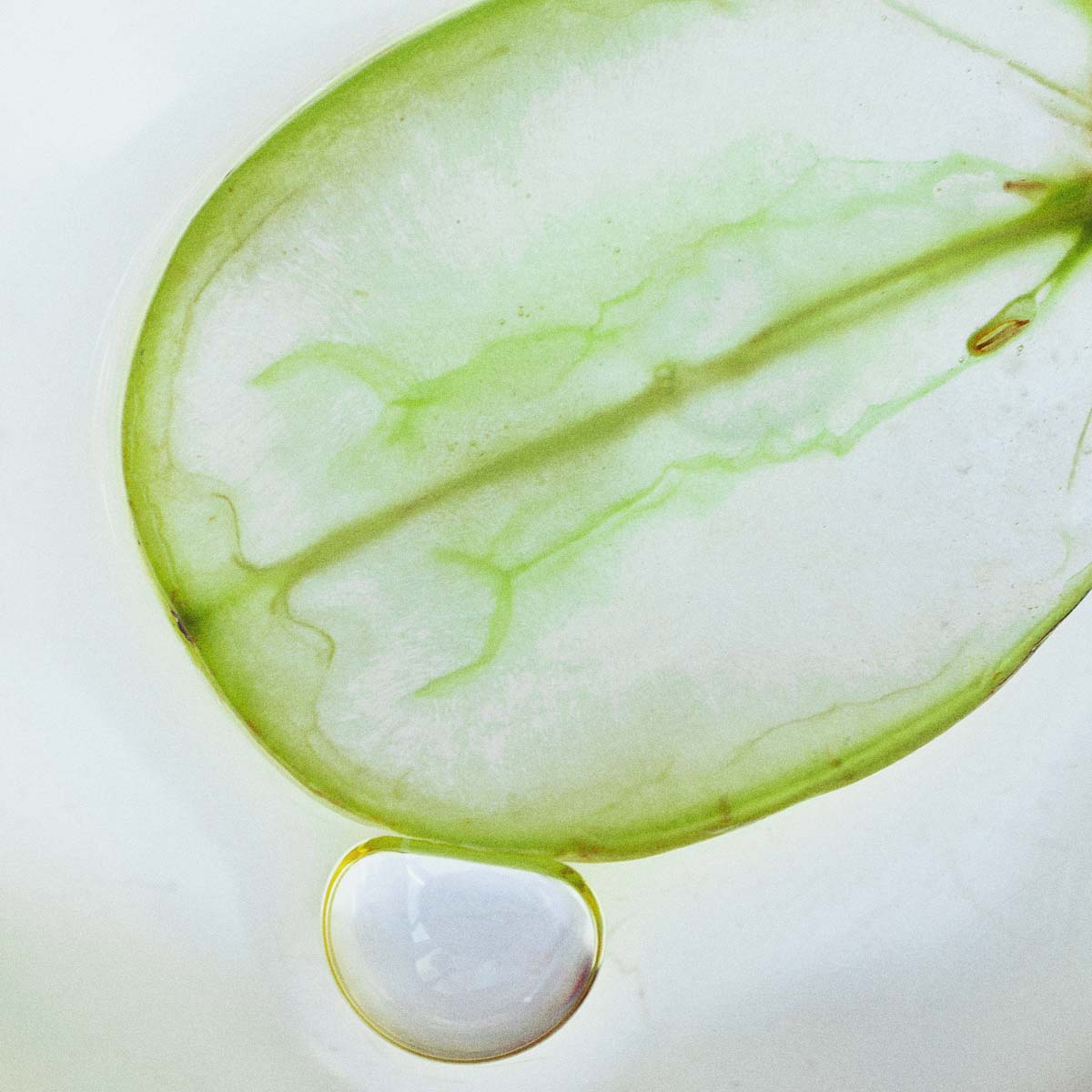Why you shouldn't spit out grape seeds, and which positive effects grape seed oil has on your skin health
Admittedly, they are by no means the flavorful part of a juicy grape. And somehow they are also disturbing as far as sensory-oral enjoyment is concerned. After all, a crunchy skin and soft flesh are followed by the hard tart shell of small, sometimes pointed seeds. Usually there are 2 to 3 per grape. In rare exceptional cases, even more.
Because of their mostly bitter taste and their tendency to get stuck in your teeth, you can now find seedless grapes in any well-stocked fruit aisle.
But as convenient as the seedless variety of this type of berry can be enjoyed: Once you know the results of a recent study from China, you will probably prefer the seeded variety.
In this article you will learn about
- the positive effects grapes have on your health in general,
- why grape seeds promote your health ,
- what the flavonoid procyanidin C1 from grape seeds could do to your body
- why grape seed oil has established itself as an ingredient in cosmetics.
Grapes - A berry for your health
Grapes have always been part of a well-laid table, integral parts of large festivities ,or as a selection in the fruit basket at home. Immortalized in numerous works of art over the centuries, the soft round to oval green or purple berry continues to enjoy great popularity. Per capita consumption of table grapes in Germany in 2020/21 was around 5 kilos [1] - not including consumption as juice and wine.
One first glance at their nutritional composition shows that grapes are a good choice for your fruit break or as a snack between meals, despite their relatively high carbohydrate content.
Thanks to digestive fiber, cell-protecting polyphenols and other cholesterol-lowering secondary plant compounds, eating grapes holistically promotes your health. This health-boosting effect for skin, hair and bones is also complemented by the unique combination of vitamins and minerals such as vitamins B1, B6, niacin, potassium, calcium and iron.
Sounds good? It gets even better! For the healthy boost that awaits you in the crunchy skin and the juicy flesh, is topped by the small bitter seeds.
A bite that can be made worthwhile: Grape seeds are in fact all that healthy
Grape seeds contain unsaturated fatty acids such as oleic acid (between 12 and 23 percent) and linoleic acid (between 65 and 72 percent) [see 4].
Linoleic acid, in particular, ensures the maintenance and regeneration of your outer skin layers. Linoleic acid can be found, for example, in the skin's own cell membranes, where it actively strengthens the natural barrier function of your skin. This is an aspect of fundamental dermacosmetic relevance, especially if you are interested in anti-aging. A permeable or damaged skin barrier not only promotes increased water loss through the skin (the so-called transepidermal water loss), but also the development of premature signs of aging such as wrinkles.
At the same time, such fatty acids have a positive effect on the cardiovascular system. According to US studies, unsaturated fatty acids can reduce cardiovascular risks by 30 percent [3].
The high vitamin E content in the oil of the seeds also protects you from the inside against free radicals that attack your cells and, for example, fuel the development of pathological changes.
In order to enjoy these positive effects, however, you have to bite the grape seeds. Unchewed grape seeds are usually excreted undigested.
While these effects have been known for a long time, research has recently made a highly interesting discovery. This is credited to a Chinese study from 2021, which examined a component of grape seeds even more closely - and made the following discoveries [5].
The true core of the grape: How the flavonoid procyanidin C1 could offer protection
It may seem trivial at first, but it gets to the heart of the process. Aging is one of the main causes of physical damage and dysfunction. What applies to the body in general, applies at the cellular level in particular.
Here, age-related functional limitations of organs and the increased risk of age-related chronic pathologies are also caused due to an accumulation of aged, possibly already damaged (senescent) cells.
Procyanidin C1, as a natural pigment (flavonoid) one of numerous secondary plant compounds in grapes extracted from grape seeds, was shown to significantly increase the health and lifespan of mice in an in vivo study.
While already low concentrations of procyanidin C1 slowed down the formation of senescent cells, in higher concentrations this substance could even completely kill already damaged older cells.
In addition, it was shown to reduce senescent cells in the cell-damaged microenvironment of a tumor in a cancer setting, supporting the therapeutic effect of concurrent chemotherapy.
Overall, this grape seed extract not only reduced organic dysfunction but also prolonged survival [5].
Although series of studies are necessary for the exact investigation of the mode of action on the human organism, the results obtained so far are promising - and definitely worth a try.
But it is not only when you bite and eat them that you can benefit from grape seeds and their effects.
Applied to the skin as grape seed oil, this naturally strong ingredient brings about numerous positive effects.
Grape seed oil: complex to extract, precious for cooking and cosmetics
As is often the case, grape seed oil - or Vitis Vinifera Seed Oil in cosmetic jargon - is one of numerous ingredients that have become very popular in cuisine and natural cosmetics.
This also applies, of course, to This Place products, including The Morning Glow and The Evening Glow facial oils.
In this context, grape seeds are initially a "waste product" that is usually collected in a winepress during the production of wine (or even juice). Coincidentally, one of the most important wine-growing regions in Germany is the southwest with Rheinhessen and the Palatinate.
To get at the precious oil in the tiny seeds, grape seeds are elaborately sieved and cleaned after the fruit has been pressed for juices and wines. Once they are dried, the oil is extracted from the seeds in special presses using various processes. Here, a distinction is made between cold and hot pressing, whereby cold-pressed oil is more valuable and thus traded at a significantly higher price. To obtain one liter of cold-pressed oil, about 40 to 50 kilos of grape seeds are processed. This corresponds to about 2 tons of grapes [2].
In addition to the numerous positive effects for your health, this effort for the extraction also explains why grape seed oil is counted among the most valuable oils in cooking and cosmetics.
As a culinary delight grape seed oil refines mainly salads and vegetable dishes. However, it can be used for the preparation of meat when heated for a short time.
In the field of cosmetics, the versatility of grape seed oil is clearly evident. Here grape seed oil is used as a lightly aromatic body and massage oil, pure as a nourishing bath additive and as a natural hair care and as an ingredient of high-quality facial care.
A particularly appreciated advantage in facial care is that grape seed oil is quickly absorbed - and without leaving a heavy, unpleasant film on the skin.
Due to its linoleic acid content, grape seed oil dissolves dead skin cells, which increases the suppleness of your skin. The oil is also suitable for the care of oily and combination skin due to its sebum-regulating effect.
If you discover pigmentation spots or irregularities on your face, a product with grape seed oil can be a good choice. This is because grape seed oil can soften the noticeable appearance of dark pigmented areas.
The particularly high tolerance makes grape seed oil a favorite ingredient also for skin types with special needs or diseases such as neurodermatitis, psoriasis or acne.
By the way: Already in the Middle Ages, the fruity-scented oil is said to have been used as a cosmetic and remedy against inflammation.
You can find more information in the blog article "Grape seed oil in skin care".
Conclusion: Small but mighty
Although seedless grapes are becoming increasingly popular, you should not do without the numerous health-promoting effects of grape seeds.
Cold or hot pressed extracted from the seeds, grape seed oil is used in cooking and cosmetics. The traditional use of grape seed oil is said to date back to the Middle Ages.
In particular, grape seeds and grape seed oil can protect your cells from the inside and outside, reduce your risk of cardiovascular disease and strengthen the natural barrier of your skin.
According to recent research, the flavonoid procyanidin C1 may slow down the aging process of your cells and thereby prolong their life. The flavonoid could also have a positive effect on the development of cancer thanks to its anticarcinogenic properties.
Some of This Place's balanced, natural formulas also rely on grape seed oil. You'll find this ingredient in The Morning Glow and The Evening Glow facial oils, The Hug period cream, The Good Night sleep cream, and The Blissful Day muscle cream.


